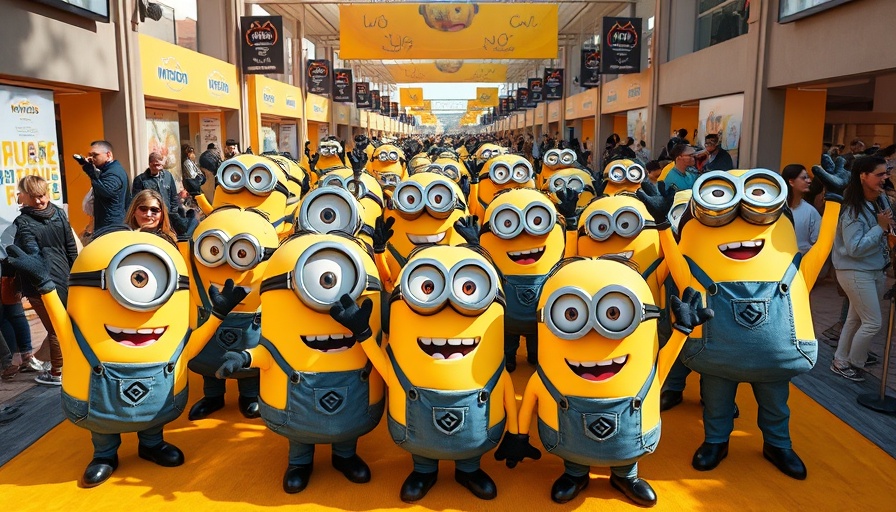
Disrupting the Legal Landscape: Disney and Universal's Groundbreaking Lawsuit Against an AI Startup
In a move that could reshape the landscape of copyright law in the age of artificial intelligence, Disney and Universal have embarked on a landmark lawsuit against Midjourney, an AI image-generating startup that has rapidly gained popularity. Filed in the U.S. District Court in Los Angeles, this suit establishes a critical confrontation between traditional intellectual property rights and the burgeoning capabilities of AI technology.
The Foundations of Copyright Law in Question
The crux of the lawsuit centers around claims that Midjourney has infringed on Disney and Universal's copyrighted characters, including icons like Darth Vader and Homer Simpson. This raises significant questions not only about ownership but also about the future of creative work in an era where AI can effortlessly generate images based on user prompts. As the entertainment industry grapples with the implications of AI, the relevance of copyright protections becomes ever more pressing.
Midjourney's Alleged Misconduct: A Breach of Trust?
The complaint alleges that despite receiving multiple cease-and-desist letters requesting the cessation of AI-driven creations involving these beloved characters, Midjourney ignored those requests. The studios argue that Midjourney’s actions are not just technical violations but constitute a broader threat to the established norms of content creation and monetization in Hollywood.
Impact on Creatives and Entrepreneurs
For business owners and creators, this lawsuit signifies a pivotal moment—one that could redefine the rules governing artistic expression and ownership. The concern is that if AI startups can freely use existing characters to generate new content, it undermines the very basis on which creators build their brands and businesses. The ability to invest in intellectual property—whether through time, creativity, or financial resources—relies on trust in the copyright system, which may be at risk.
Midjourney's Business Model Under Fire
With Midjourney generating impressive revenue figures, reportedly $300 million last year, its models have raised eyebrows. The startup employs a subscription model that allows users to access AI-generated images. This approach not only offers accessibility to a wider audience but also blurs the lines of accountability when it comes to the legal use of copyrighted material. If companies can profit from use of established characters without compensating original creators, it could discourage innovation and investment in the arts.
The Broader Implications for AI and Copyright
This lawsuit is not an isolated incident; it reflects a growing concern in the tech and creative industries. Getty Images has similarly engaged in legal actions against AI companies over copyright issues, highlighting a trend that could lead to a proliferation of copyright-related lawsuits in various sectors. This paints a picture of an evolving battleground where tech meets creativity, and legal frameworks struggle to keep pace with technological advancements.
What Lies Ahead? A Landscape of Uncertainty
The outcome of this lawsuit could set a significant precedent affecting future interactions between AI creators and traditional content creators. For entrepreneurs in creative sectors, understanding the potential ramifications is crucial. With AI's role in content creation becoming more mainstream, having a grasp of legal and ethical implications surrounding copyright might become part of the core strategy.
Call to Action: Stay Informed and Engaged
As business owners, it’s essential to keep a close eye on this developing lawsuit and its implications for your industry. Understanding how copyright law is influenced by emerging technologies can position you to better navigate future challenges. Engage with your legal advisors about potential impact and start discussions with fellow creators about how to adapt and strategize in this evolving landscape.
 Add Row
Add Row  Add
Add 



Write A Comment